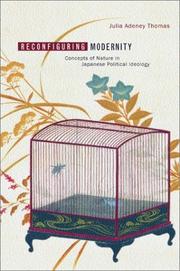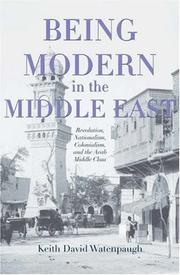| Listing 1 - 5 of 5 |
Sort by
|
Book

ISBN: 2858313474 2858313466 9782858313471 Year: 2020 Publisher: Paris : Presses de l’Inalco,
Abstract | Keywords | Export | Availability | Bookmark
 Loading...
Loading...Choose an application
- Reference Manager
- EndNote
- RefWorks (Direct export to RefWorks)
Institués au sortir de la Première Guerre mondiale, les mandats de la Société des Nations illustrent les implications de l’arrivée des experts dans les Suds dès les années 1920. Ils constituent pour cette raison un angle d’attaque privilégié pour réfléchir aux liens entre expertise et colonisation comme aux dynamiques qui accompagnent les experts. S’ils ont été l’objet de discussions intenses, les mandats ne peuvent guère être considérés comme l’objet d’un champ d’expertise bien délimité avec ses méthodes uniformisées, son corps de savoirs systématisés et ses procédures formalisées de certification. Les discours institutionnels d’experts sur les mandats, divers et dénués de cohérence, dissimulaient souvent les modalités habituelles du gouvernement colonial. Cependant, les temps changeaient. La pluralité des cadres institutionnels où l’on discutait des mandats (Commission permanente des mandats, autres organes de la SDN) sapait le monopole supposé des États coloniaux sur la prise de décision informée. L’intérêt des organisations privées et caritatives était également d’importance, dans la mesure où certaines investirent massivement dans des projets exploratoires de développement à fort coefficient d’expertise. Ajoutées les unes aux autres, ces circonstances institutionnelles attiraient des experts potentiels vers les mandats, d’où l’on peut observer et les tensions d’empire qui marquaient l’ère coloniale finissante et les prémisses de politiques publiques fortement consommatrices d’expertise qui se diffusent dans les Suds après 1945. Expertise in the colonial world can be characterized, more perhaps than in any other context, by the tension between abstract knowledge and acquaintance with the field as inspirations for decision making. The League of Nations mandates instituted after World War I should not be understood as a laboratory of expertise in the colonial world, but as an early instance of the implications of bringing experts to the global South. Not only…
History --- International Relations --- mandats --- experts --- empire colonial --- Société des Nations --- expertise --- développement --- Sud --- Mandates --- Experts --- Colonial Empire --- League of Nations --- Expertise --- Development --- South --- League of Nations.
Book
ISBN: 1501768328 1501768336 Year: 2023 Publisher: Ithaca, New York : Cornell University Press,
Abstract | Keywords | Export | Availability | Bookmark
 Loading...
Loading...Choose an application
- Reference Manager
- EndNote
- RefWorks (Direct export to RefWorks)
"This book reconstructs the birth and development of the tourism sector in colonial Mozambique, from roughly 1890 to 1975, with a focus on the experiences of African laborers in the industry."--
Book
ISBN: 9780520973077 9780520304383 0520304381 0520973070 Year: 2019 Publisher: Oakland University of California Press
Abstract | Keywords | Export | Availability | Bookmark
 Loading...
Loading...Choose an application
- Reference Manager
- EndNote
- RefWorks (Direct export to RefWorks)
In Search of Our Frontier explores the complex transnational history of Japanese immigrant settler colonialism, which linked Japanese America with Japan's colonial empire through the exchange of migrant bodies, expansionist ideas, colonial expertise, and capital in the Asia-Pacific basin before World War II. The trajectories of Japanese transpacific migrants exemplified a prevalent national structure of thought and practice that not only functioned to shore up the backbone of Japan's empire building but also promoted the borderless quest for Japanese overseas development. Eiichiro Azuma offers new interpretive perspectives that will allow readers to understand Japanese settler colonialism's capacity to operate outside the aegis of the home empire.
Japanese --- Imperialism --- Transnationalism --- History --- Japan --- Colonies --- History. --- Imperialism. --- Transnationalism. --- backbone of japans empire building. --- borderless quest for japanese overseas development. --- capital in asian pacific basin. --- colonial expertise. --- expansionist ideas. --- japanese america with japans colonial empire. --- japanese immigrant settler colonialism. --- japanese migration and colonialism. --- migrant bodies. --- trajectories of japanese transpacific migrants. --- understand japanese settler colonialism.

ISBN: 1282356380 0520926846 9786612356384 1597348546 9780520926844 0585468575 9780585468570 9781282356382 9780520228542 0520228545 9781597348546 0520228545 Year: 2001 Publisher: Berkeley University of California Press
Abstract | Keywords | Export | Availability | Bookmark
 Loading...
Loading...Choose an application
- Reference Manager
- EndNote
- RefWorks (Direct export to RefWorks)
Julia Adeney Thomas turns the concept of nature into a powerful analytical lens through which to view Japanese modernity, bringing the study of both Japanese history and political modernity to a new level of clarity. She shows that nature necessarily functions as a political concept and that changing ideas of nature's political authority were central during Japan's transformation from a semi feudal world to an industrializing colonial empire. In political documents from the nineteenth to the early twentieth century, nature was redefined, moving from the universal, spatial concept of the Tokugawa period, through temporal, social Darwinian ideas of inevitable progress and competitive struggle, to a celebration of Japan as a nation uniquely in harmony with nature. The so-called traditional "Japanese love of nature" masks modern state power. Thomas's theoretically sophisticated study rejects the supposition that modernity is the ideological antithesis of nature, overcoming the determinism of the physical environment through technology and liberating denatured subjects from the chains of biology and tradition. In making "nature" available as a critical term for political analysis, this book yields new insights into prewar Japan's failure to achieve liberal democracy, as well as an alternative means of understanding modernity and the position of non-Western nations within it.
Nature --- Effect of human beings on --- Japan --- Politics and government --- J4600.70 --- J4610 --- J4000.70 --- Japan: Politics and law -- history -- Kindai (1850s- ), bakumatsu, Meiji, Taishō --- Japan: Politics and law -- theory, methodology and philosophy --- Japan: Social history, history of civilization -- Kindai (1850s- ), bakumatsu, Meiji, Taishō --- asia. --- biology. --- colonial empire. --- colonialism. --- competition. --- east asia. --- empire. --- environment. --- environmentalism. --- feudalism. --- harmony. --- industrial revolution. --- japan. --- japanese colonialism. --- japanese history. --- japanese imperialism. --- japanese literature. --- japanese studies. --- liberal democracy. --- meiji history. --- modern japan. --- modernity. --- natural world. --- nature. --- nonfiction. --- physical environment. --- political authority. --- political power. --- politics. --- prewar japan. --- progress. --- social darwinism. --- state power. --- technology. --- tokugawa. --- tradition.

ISBN: 0691155119 1322336342 9780691121699 1400866669 0691121699 Year: 2006
Abstract | Keywords | Export | Availability | Bookmark
 Loading...
Loading...Choose an application
- Reference Manager
- EndNote
- RefWorks (Direct export to RefWorks)
In this innovative book, Keith Watenpaugh connects the question of modernity to the formation of the Arab middle class. The book explores the rise of a middle class of liberal professionals, white-collar employees, journalists, and businessmen during the first decades of the twentieth century in the Arab Middle East and the ways its members created civil society, and new forms of politics, bodies of thought, and styles of engagement with colonialism. Discussions of the middle class have been largely absent from historical writings about the Middle East. Watenpaugh fills this lacuna by drawing on Arab, Ottoman, British, American and French sources and an eclectic body of theoretical literature and shows that within the crucible of the Young Turk Revolution of 1908, World War I, and the advent of late European colonialism, a discrete middle class took shape. It was defined not just by the wealth, professions, possessions, or the levels of education of its members, but also by the way they asserted their modernity. Using the ethnically and religiously diverse middle class of the cosmopolitan city of Aleppo, Syria, as a point of departure, Watenpaugh explores the larger political and social implications of what being modern meant in the non-West in the first half of the twentieth century. Well researched and provocative, Being Modern in the Middle East makes a critical contribution not just to Middle East history, but also to the global study of class, mass violence, ideas, and revolution.
Arab nationalism. --- Civil society --- Middle class --- Revolutions. --- Social conflict --- Arabs --- Nationalism --- Bourgeoisie --- Commons (Social order) --- Middle classes --- Social classes --- Insurrections --- Rebellions --- Revolts --- Revolutionary wars --- History --- Political science --- Political violence --- War --- Government, Resistance to --- Class conflict --- Class struggle --- Conflict, Social --- Social tensions --- Interpersonal conflict --- Social psychology --- Sociology --- Social conditions --- Middle Eastern 1 : --- General & Multiperiod. --- Politics and government --- Middle East --- Politics and government. --- Agriculture (Chinese mythology). --- Al-Jabiri. --- Aleppo. --- Arabs. --- Armenians. --- Armistice. --- Bilad al-Sham. --- Bourgeoisie. --- Bureaucrat. --- Censorship. --- Cilicia. --- Citizenship. --- Civil society. --- Civilization. --- Class conflict. --- Colonialism. --- Communal violence. --- Criticism. --- Disenchantment. --- Eastern Mediterranean. --- Effendi. --- Election. --- Emancipation. --- Emigration. --- Ethnic cleansing. --- Exclusion. --- Fawaz. --- French Colonial. --- French colonial empire. --- Gaziantep. --- Governance. --- Hashemites. --- Hegemony. --- High Commissioner. --- Historicism. --- Historiography. --- Ibrahim Hananu. --- Ideology. --- Imperialism. --- Institution. --- Interwar period. --- Islamism. --- Jews. --- Journalism. --- Kamil. --- Kemalism. --- League of Nations. --- Lecture. --- Legitimacy (political). --- Liberalism. --- Literature. --- Middle East. --- Middle class. --- Military occupation. --- Modernity. --- National identity. --- Nationalism. --- New men. --- Newspaper. --- Of Education. --- Oral history. --- Ottoman Empire. --- Ottomanism. --- Pan-Arabism. --- Political party. --- Political philosophy. --- Political structure. --- Politician. --- Politics. --- Politique. --- Precedent. --- Princeton University Press. --- Public opinion. --- Public sphere. --- Refugee. --- Rhetoric. --- Sectarianism. --- Secularism. --- Separatism. --- Social class. --- Social exclusion. --- Sovereignty. --- State of Syria (1924–30). --- Sykes–Picot Agreement. --- Syrian nationalism. --- Syrians. --- Tanzimat. --- Tax. --- Technology. --- War crime. --- Wealth. --- Western Europe. --- Western world. --- Westernization. --- Wilsonianism. --- World War I. --- Writing. --- Young Turk Revolution. --- Zionism.
| Listing 1 - 5 of 5 |
Sort by
|

 Search
Search Feedback
Feedback About
About Help
Help News
News